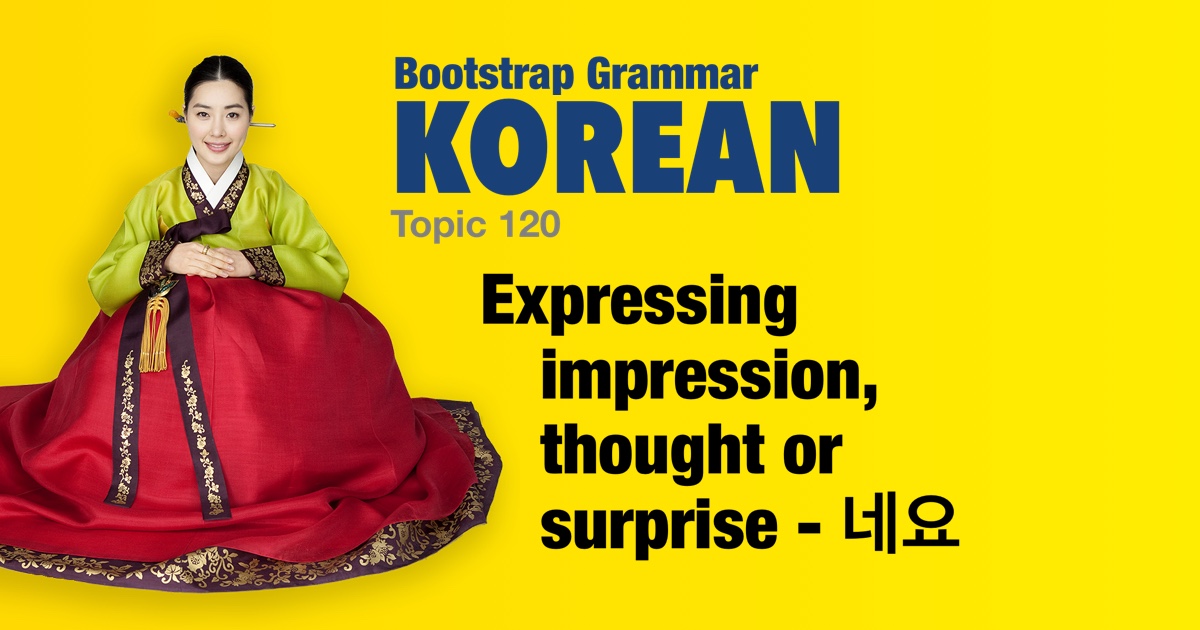Korean grammar - Expressing impression, thought or surprise - 네요 |
|||
|
|||
Pattern: Verb stem + 네요 Another pattern for expressing surprise at learning a fact is: Verb form + 네요. This form has a similar meaning and usage to ~군요 although usually used based on the speaker's direct experience. It is also used when agreeing with someone else's impression. This form is very often used in an informal context - among friends etc. In that case the ending is simply 네. |
| Examples: | |
|
크네요!
(It) is big!
|
|
|
맞네요!
(It) is correct!
|
|
|
믿어지질 않네요.
(I) don't believe it. |
|
|
아들이 귀엽네요.
(Your) son is (so) cute! |
|
|
욕실이 아주 깨끗하네요.
The bathroom is very clean! |
|
|
이 음식점은 음식이 정말 맛있네요.
The food at this restaurant is really good! |
|
|
선생님! 영어를 너무 잘하시네요!
Teacher! (You) speak English so well!
|
|
|
집에 먹을 것이 하나도 없네요.
At home, there is nothing to eat! |
|
|
갈 길이 머네요.
(I) can see that (we) have a long way to go.
|
|
|
책을 많이 읽었네요.
(You) read (past tense) a lot of books! |
|
|
지금 아주 심각한 상황이네요.
(I) realise that this situation is now very serious.
|
|
|
오늘 날씨가 덥지요? 네, 정말 덥네요.
Isn't the weather hot today? Yes, it's really hot.
|
|
|
한국 음식을 잘 드시네요.
(You) (really) eat Korean food well.
|
|
|
열심히 공부했네!
(You) studied hard!
|
|
|
맛있네!
That's delicious!
|
|
|
이거 정말 맛있네요!
This is really delicious! |
|
|
현재 사과는 매우 저렴하네요.
(Oh!) Apples are very cheap at the moment.
|
|
|
노래를 정말 잘하시네요.
(You) (honorific) really sing very well. |
|
|
사실 잘 어울리네요.
Actually, it looks good (on you).
|
|
|
이렇게 큰 줄 몰랐네요.
(I) didn't know that (it) was so big.
|
|
 |
|


 The sense is 'Wow, it is bigger than expected.'
The sense is 'Wow, it is bigger than expected.'
